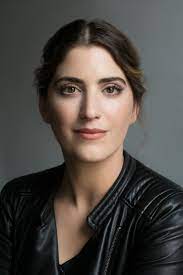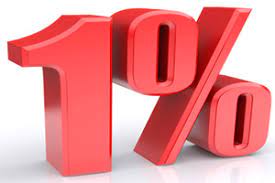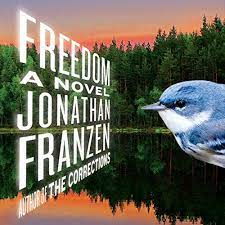Suleika Jaouad’s book is one of those cancer memoirs. But with a difference.

She had it bad. A lot of health red flags that she ignored, and then doctors misdiagnosed, until it was almost too late. At 22, she had a particularly nasty kind of Leukemia. If I weren’t reading her memoir, I’d have bet she died.
The book gives a vivid, unsparing, brutal account of the long ordeal. With treatments failing, she was put on an experimental one. (I’d have liked more info about that.) But her only real chance was a bone marrow transplant, a dicey proposition. Luckily her brother was a tissue match.
Through it all, her relations with other people — many fellow sufferers — were also center stage. Being much more introverted myself, I was impressed at her breadth of connections, mustering the psychic energy for them while dealing with her own really unimaginable shit. It helped that she even got herself a New York Times column chronicling her experiences.

Suleika’s key relationship was with boyfriend Will. It started before her diagnosis, in New York. Then only weeks later she leaves for a job in Paris. And Will follows. And sticks with her as the hospital nightmare soon unfolds. At 27, he hadn’t originally signed up for three years of hell as a practically full time care-giver, but he embraces it, seemingly almost unreservedly. For nearly the whole saga, Will is a saint who gives Suleika 99%.

But oh, that 1% is a killer.
Well, maybe it was 5% or even 10%. As light appears at the end of the tunnel, he starts taking some breaks from the pressure cooker. But Suleika can’t accept a 90/10 deal. She insists on 100%. Not getting it, she finally blows him off.
Perhaps my take on this was colored by my own decade of hell struggling with a woman’s issues, until she left me to marry a pen-pal. Suleika’s behavior might seem crazily unjustifiable and self-sabotaging. Yet maybe it can be understood, sort of. A normal love relationship is give-and-take, but Suleika’s circumstances were not normal — grotesquely skewed by her illness’s extremis. She did need 100%, and in her mind, anything less was a betrayal.

That’s only the book’s first half. The second concerns her journey between the two kingdoms of the title — the realms of the sick and the well (following Susan Sontag). Suleika does recover. But her years of illness were so all-consuming that a return to the other kingdom was difficult to negotiate. She makes it a literal journey, embarking on a cross-country road trip, with her dog, to meet people who’d connected with her about her Times column.
I was reminded of Cheryl Strayed’s big hike in Wild, likewise a personal journey. With both gals not exactly prepared for the rigors of their undertakings.
Toward the end, Suleika finally returns to thoughts of Will. She’s actually been considering him the bad guy in the story, with great resentment at what she saw as his ultimate failure to fulfill her immense need. But then, she says, her anger finally drains away; and “in its place, I am able to feel what anger hasn’t allowed me to feel.” That he was there for her when it counted. Now she wants to ask forgiveness. To tell him how much she misses him.
“If this were a movie,” Suleika writes, “I would call Will from the road right now. Maybe, we’d even find our way back to each other.”

I recalled Jonathan Franzen’s novel Freedom, where near the end I was practically shouting at Patty to just get in her car and go to Walter. And she does.
But Between Two Kingdoms is not a Franzen novel, nor a movie. It’s real life, in all its exasperating humanness. Suleika doesn’t call.
